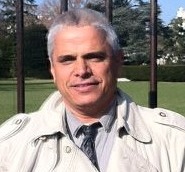There is a growing belief and conviction among some political, economical analysts and intellectuals at large in the Middle East that Wall Street (WS) might face more problems though not in the near future, and more crises could be on the way. Quick fix solutions and passing of new regulations, though helped in the past, may not continue since the financial system became so complex and interconnected that planners may never know when, where and how the next crisis will erupt. They believe that America have resorted and will resort to covert operations to keep WS afloat.
America has to do whatever it can to save WS and it seems that normal financial fixes have a limit and some other tools have to be used ,not only to keep WS afloat, but keep the huge debts America owes to other governments and institutional investors under control. This is where unconventional tools such as invasions, framing and war-creating come to play.
Freezing of
assets (for countries or institutions) seems to be the quick fix but a good
reason for it has to be (created). Assets
freezing, in general, is a good tool against corrupt and criminal behavior, but
the concerns that it might be misused are legitimate and real. The question is can the American fiscal and
monetary health survive even a partial withdrawal of foreign investment in US
treasury bonds and other American debt instruments? For those foreign investors
which jurisdiction will be referred to in case of a dispute? The Investor's or
the host's or a neutral one? Is it fair for the investor if it is only the host
country's jurisdiction? And if it is, should a wise investor invest in such country? Covert operations to keep a financial system
running are helpful in the short term but have a devastating catastrophic
effects in the long term.
Hamad S Alomar
Riyadh





